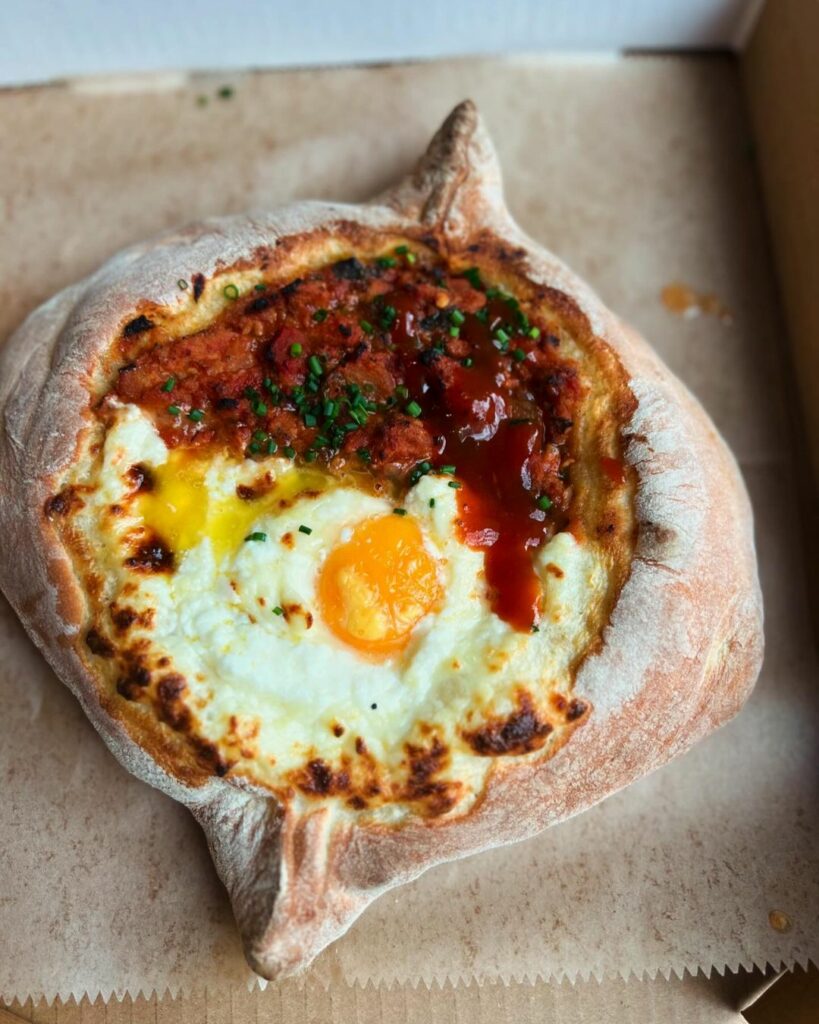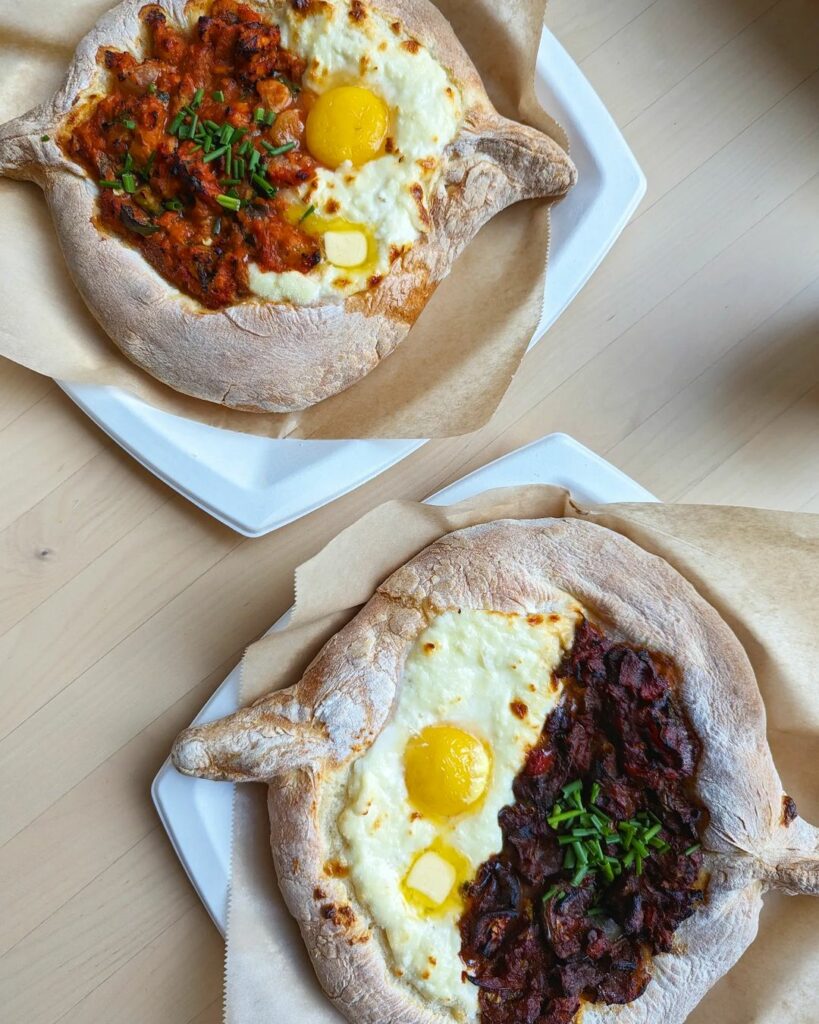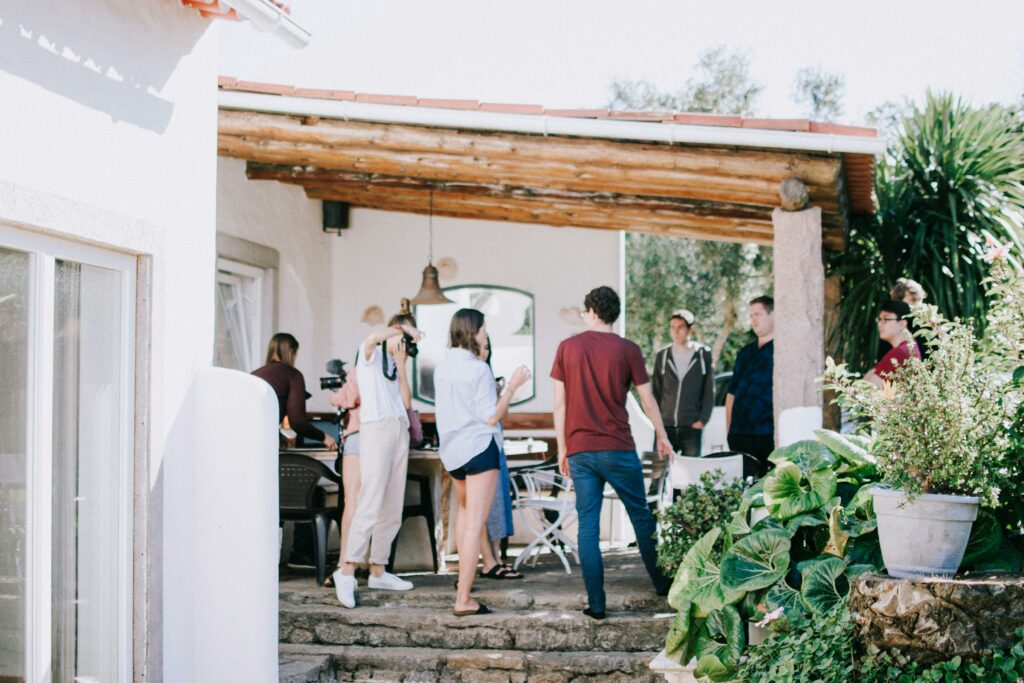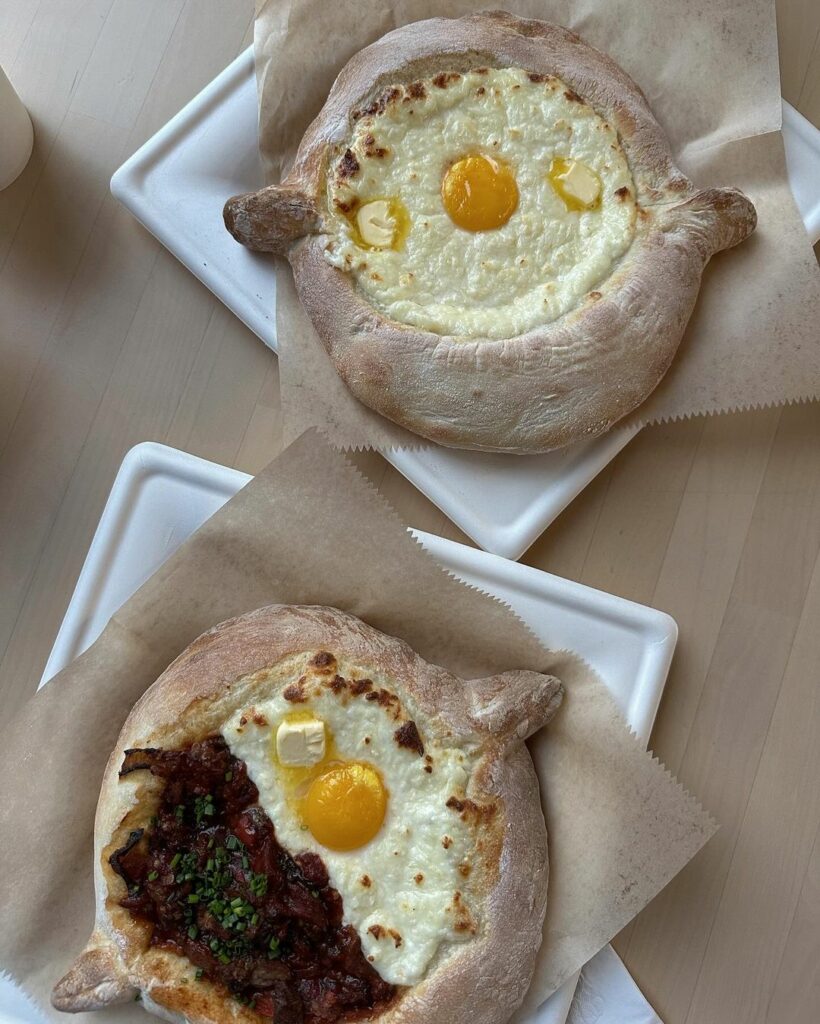Khachapuri, Georgia’s iconic cheese-filled bread, is more than just a staple of the nation’s cuisine—it’s a symbol of hospitality, tradition, and celebration. This beloved dish, available in various regional forms like Adjaruli, Imeruli, and Megruli, plays a significant role in Georgian festivals and celebrations. Let’s explore how Khachapuri is woven into the fabric of Georgian cultural festivities.

Khachapuri: A Culinary Symbol of Celebration

1. Festivals and Feasts: Georgian festivals are renowned for their vibrant atmosphere, filled with music, dance, and, of course, an abundance of food. Khachapuri holds a place of honor at these gatherings, symbolizing prosperity and the importance of sharing. Whether it’s a religious holiday, a public celebration, or a family milestone, Khachapuri is always a part of the feast.
Major Festivals Featuring Khachapuri

1. Easter (Paska): Easter is one of the most significant religious holidays in Georgia, marked by elaborate feasts after a period of fasting. Khachapuri is a staple on the Easter table, often accompanied by other traditional dishes like paska bread and red-dyed eggs. Families gather to enjoy these foods, symbolizing rebirth and renewal.
2. New Year (Akhali Tseli) and Christmas (Shoba): The Georgian New Year and Christmas celebrations are times of great festivity, featuring a wide array of traditional foods. Khachapuri is a favorite during these holidays, often served alongside dishes like satsivi (turkey in walnut sauce) and gozinaki (caramelized walnuts). The dish represents warmth and the joy of coming together with loved ones.
3. Supra: The supra, or traditional Georgian feast, is a key aspect of Georgian social life, held during celebrations such as weddings, birthdays, and religious holidays. Khachapuri is a central component of the supra, symbolizing hospitality and the sharing of abundance. The dish is often passed around the table, encouraging communal eating and bonding.
Regional Festivals Celebrating Khachapuri

1. Tbilisoba: Tbilisoba is an annual festival celebrating the city of Tbilisi, featuring parades, concerts, and food markets. Khachapuri, particularly the Adjaruli variety, is a highlight of the culinary offerings, showcasing the city’s rich food culture. Visitors and locals alike indulge in this delicious bread, enjoying it as they partake in the festivities.
2. Cheese Festivals: Georgia is known for its diverse range of cheeses, and several regions host cheese festivals to celebrate this heritage. Khachapuri, with its cheese-filled center, is a star attraction at these events. The festivals offer a chance to taste different types of Khachapuri, each highlighting the unique cheeses of the region.
Khachapuri in Family Celebrations

1. Weddings: In Georgian weddings, food plays a crucial role in the celebrations, and Khachapuri is a must-have. The bread is often served at the wedding feast, symbolizing good fortune and prosperity for the newlyweds. The sharing of Khachapuri among guests signifies unity and joy.
2. Birthdays and Anniversaries: Khachapuri is a popular choice for family gatherings celebrating birthdays and anniversaries. Its comforting and indulgent nature makes it a perfect dish for marking special occasions, bringing families together around the table.
The Cultural Significance of Khachapuri

Khachapuri’s presence in Georgian festivals and celebrations goes beyond its delicious taste. It embodies the essence of Georgian hospitality and the tradition of sharing food with loved ones. The act of making and serving Khachapuri is a gesture of warmth and generosity, reflecting the deep cultural values of Georgia.
Khachapuri is more than just a beloved dish in Georgia; it is a cultural icon that enhances the joy of festivals and celebrations. From religious holidays to regional festivals and family gatherings, Khachapuri brings people together, creating a sense of community and continuity. Its role in these events highlights the importance of food in Georgian culture, making every bite a celebration of heritage and togetherness.
